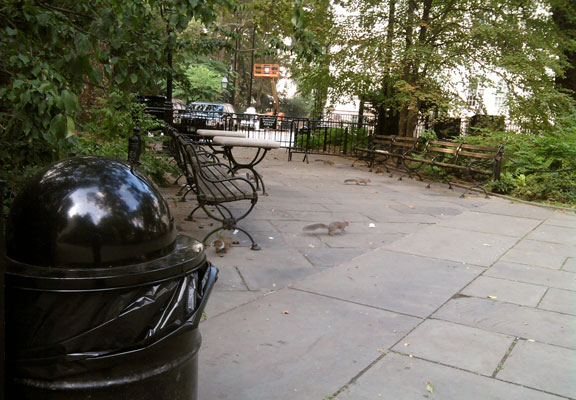

Credit: Darina Naidu
NEW YORK, New York (WOMENSENEWS)–The Women’s City Club of New York, founded in 1915 by suffragists, has been focused on good-governance issues–education, environment–in recent years.
But in June, under the leadership of Taina Bien-Aime, who took over as executive director in 2012, it returned to its earliest core mission: the welfare of women and children.
That’s not surprising, given Bien-Aime’s personal commitment toward women’s rights, whether she’s running a city group or Equality Now, the international women’s advocacy group that she ran for 10 years.
Demonstrating its new activism, the group in June issued a statement supporting the city’s probe into complaints made by the two women employed as part-time workers raking weeds and picking up trash in the city’s parks.
Since 2009, the workers said, male supervisors had engaged in inappropriate touching, asked for sexual favors and held pole-dancing contests at employee gatherings.
After the New York Daily News broke the story of the allegations in May, the Department of Investigation — an anti-corruption arm of the city government — interviewed participants, sifted through documents and delivered a report to the Parks Department, where the investigation is ongoing.
One supervisor accused of sexual harassment has been moved to a non-supervisory position, and another has been suspended without pay. The two seasonal workers have moved to jobs outside the Parks Department, according to a spokesperson in a recent email interview.
Diversifying and Changing
Women’s City Club was founded in 1916 with members including former First Lady Eleanor Roosevelt; Secretary of Labor Frances Perkins, the first woman to become a member of the U.S. cabinet; and actress Helen Hayes. The City Club, long led by a volunteer board mostly governed by white women, is in a phase of trying to attract younger members and to diversify its leadership.
In the Parks Department case, the Women’s City Club spotted a vulnerable group of women.
Many of these workers are low-income single mothers getting by with help from public assistance and referred to their jobs by job placement services or workfare; the program of linking welfare benefits to employment.
Since their positions often only last four or six months, such workers have little assurance of being rehired the next season by the Parks Department and can be leery of raising any complaints.
In May, however, the two seasonal workers did speak up when they lodged their complaints.
“It’s really egregious that the Parks Department was not aware for so long,” said Bien-Aime in a recent interview at her office in a temporary suite in Midtown Manhattan.
She sees the harassment of the seasonal park workers as a local form of sexual exploitation, an issue that she confronted on a global front in her former post as executive director of Equality Now.
From Brooklyn to Bangkok
“Whether the issue is international or New York City and New York State, it’s the same,” said Bien-Aime, who believes that girls and women in Brooklyn require the same kind of advocacy as counterparts in Bangkok, an epicenter of sex tourism and sex trafficking.
A first-generation Haitian-American, Bien-Aime holds degrees from the University of Geneva in Switzerland, as well as the New York University School of Law.
She grew up among women who fought for gender equality, both on the Caribbean island nation and in North America.
“My grandmother was a suffragist,” she says, “and my mother was a feminist. As a little girl, I thought that the women in my family were the most powerful people in the world.”
Childhood perceptions change, however. Bien-Aime saw the limits of the domestic sphere.
“I saw my aunts having to be submissive to their husbands,” said Bien-Aime. “They changed, even if they worked outside the home. They talked about pats on their behind from their bosses. They had to accept it.”
Bien-Aime didn’t believe that she or other women–including those working for the Parks Department–should have to accept it.
Marge Ives, president of the Women’s City Club, said her organization will closely monitor the Parks Department case. “We will ensure that anti-sexual harassment measures are enforced and that prevention efforts are in place and implemented.” Ives said in an e-mail interview.
Behlor Santi lives in New York City. She’s currently working on her memoir, “A Crazy Girl’s Guide To Real Estate In New York City,” and two books of short fiction.
Would you like to Comment but not sure how? Visit our help page at https://womensenews.org/help-making-comments-womens-enews-stories.
Would you like to Send Along a Link of This Story? https://womensenews.org/story/sexual-harassment/130912/nyc-womens-club-embraces-seasonal-workers-case


